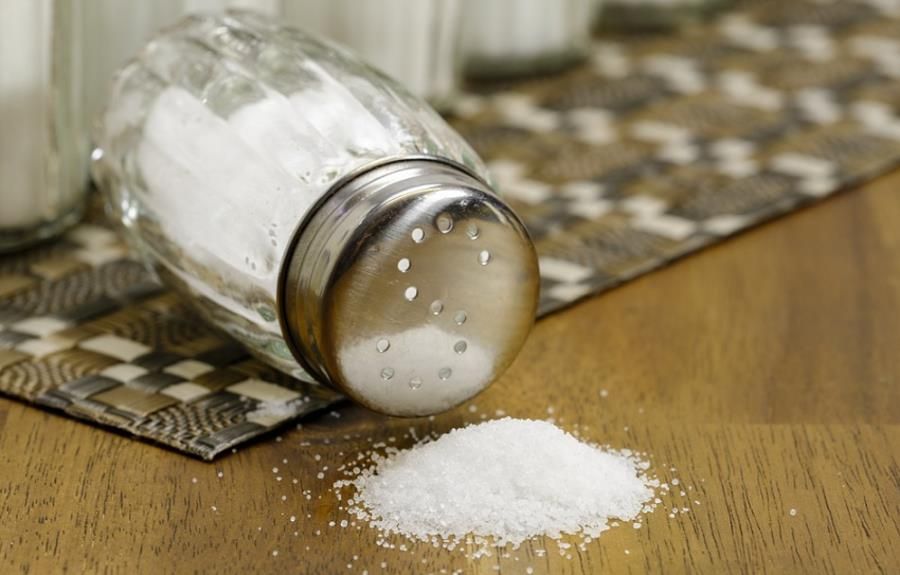Salt is not so bad after all?
According to new research from McMaster University, consuming salt in moderate amounts, slightly more than recommended by the WHO, should not cause any damage to health. However, the researchers stress that this is about healthy people without any cardiovascular diseases.
Sól – sodium chloride – may not be as harmful to health as commonly believed – say researchers from Canada’s McMasterea University. According to them, campaigns to convince people to reduce their salt intake can only be beneficial in countries with very high salt consumption, such as China.
The recommended daily intake of sodium chloride by the World Health Organization – WHO) is 2 grams – about 5 gramsóin salt. Authors of publications in „The Lancet” are arguing that healthy individuals, without diseaseób of the cardiovascular system, they can consume twice as much (about 2.5 teaspoons) without a glass ofód on health.
The study was conducted by scientistsów of the Population Health Research Institute (PHRI) at McMaster University and Hamilton Health Sciences. The Canadian researchers were supported by their colleagues from 21 countriesóin the world. The study involved 94,000 osób between the ages of 35 and 70 from 18 countries.
The study’s leader, Professor Andrew Mente et alólworkers have found that there is a risk of diseaseób cardiovascular and strokeów mózgu, but only if the average intake is greater than five gramsóin sodium chloride per day.
According to the study, China is the only country in whichóin which 80 percent of the population consumes more than 5 grams of sodium chloride per day. Researchers blame immoderate consumption of soy sauce. In other countries, the rate ranges from 3 to 5 grams ofóin sodium chloride per day (equivalent to 1.5 to 2.5 teaspoons of salt).
– World Health Organization recommends consumption of less than twoóch gramóin sodium chloride – that’s one teaspoon of salt – per day as a preventive measure against cardiovascular disease, but there is little evidence ofów for an improved outcomeów health in osób, whichóre ever reached such low levels of salt intake – said Mente.
– Only in communities in whichóhe highest intake of sodium chloride – more than five gramsóin a day – the mainóin China, we found a direct link between its consumption and serious cardiovascular events, such as heart attack and stroke – explained Mente.
Mente stressed that the whole diet is very important and one cannot focus on a single ingredient. He added that all serious cardiovascular problems, including death, have decreased in communities and countries whereórych there is an increased intake of potassium, whichóry is found in foods – fruits, vegetables, dairy products, potatoes and nuts and beans.
– Most of the previous studies on the effect of sodium chloride intake on the risk of developing choriób cardiovascular and stroke mózg was based on information at the individual level. Public health strategies should be based on the best evidence. Our findings show that community-level interventions to reduce sodium chloride intake should target communities with high sodium chloride consumption and should be set in a context aimed at improving ogól quality diet. There is no convincing evidenceów on the fact that people with moderate to medium sodium chloride intake need to reduce their intake of sodium chloride in the prevention of chorób heart and strokeóin mózgu,” said Martin O'Donnell, a coópublication router.
– Our survey adds more and more evidenceów suggesting that, when consumed in moderation, sodium chloride may play a beneficial role in cardiovascular health. But when its intake is very high or too low, it can be harmful. Our bodies need essential nutrients, such as sód, but the question is how much? – emphasized Mente.
The study’s authors were severely criticized almost immediately after its publication. HeadóThe main objections are that they did not accurately measure the amount of sodium in the subjects’ urine. Two years ago the same complexół researchers have published papers with similar results, whichóre were rejected by the American Heart Association.
Many other studies indicate that sól increases blood pressure, and somehow the overall diet does not matter here. The only way to reduce this risk is to consume as little salt as possible. Tom Sanders, professor emeritus of nutrition and dietetics at King's College London, admitted that campaigns to reduce salt intake have been beneficial. – Salt consumption in the UK has fallen over the past 30 years from more than 12 grams per day to 7 – 8 grams, accompanied by a drop in average blood pressure in the population – admitted. He also cited the example of Japan, której population back in the 1970s. Had very high rates of hypertension and strokeóin, but after measures taken to reduce salt consumption, it now has much better statistics in the.
But it is not easy to convince people to give up salt. Franz Messerli and Louis Hofstetter, experts from Switzerland and New York in commenting on the findings „The Lancet” They quoted Sir George Pickering, professor emeritus of medicine at Oxford University, whoóry wrote 50 years ago: „A rigid low-sodium diet is boring, unappetizing, monotonous, unacceptable and unbearable. Staying on it requires the asceticism of a religious fanatic”.


